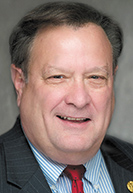Subscriber Benefit
As a subscriber you can listen to articles at work, in the car, or while you work out. Subscribe NowWhile more restrictive abortion laws continue to take effect in several Republican-led states following the U.S. Supreme Court’s decision last month to end the constitutional protection for abortion, Hoosiers are left in limbo as they wait for a special session to unveil what Indiana legislators plan to do with the matter.
At least one Indiana prosecutor has taken a stance against prosecuting abortions in the event that a total ban is enacted in light of the Supreme Court’s ruling in Dobbs v. Jackson Women’s Health Organization.

Marion County Prosecutor Ryan Mears, who previously ruffled feathers when he halted his office’s prosecution of low-level marijuana offenses, declared he similarly would not prosecute abortions.
Mears said the reason for his decision stems from what he said is a need to direct legal resources to the areas where his office can have the most impact.
“We are struggling with violent crime right now,” Mears, a Democrat, told Indiana Lawyer. “And the idea that we’re going to devote the attention of law enforcement, we’re going to devote the attention of prosecutors, we’re going to devote the attention of medical professionals to deal with these types of issues is misplaced priorities.
“To shift those resources from those areas in order to pursue these types of cases does not ultimately benefit the public,” he continued. “It does not make Marion County safer.”
National pushback
Dozens of prosecutors nationwide have joined that sentiment. Mears is one of 90 elected prosecutors who signed a joint statement issued by Fair and Just Prosecution opposing the prosecution of abortion providers and recipients.
“Not all of us agree on a personal or moral level on the issue of abortion,” the statement says. “But we stand together in our firm belief that prosecutors have a responsibility to refrain from using limited criminal legal system resources to criminalize personal medical decisions. As such, we decline to use our offices’ resources to criminalize reproductive health decisions and commit to exercise our well-settled discretion and refrain from prosecuting those who seek, provide, or support abortions.”
The prosecutors went on to say that enforcing abortion bans “runs counter to the obligations and interests” they are sworn to uphold.
“It will erode trust in the legal system, hinder our ability to hold perpetrators accountable, take resources away from the enforcement of serious crime, and inevitably lead to the retraumatization and criminalization of victims of sexual violence,” the statement says.
Speaking with Indiana Lawyer, Mears said Hoosiers shouldn’t feel discouraged from going to the doctor because they are afraid of being criminally charged in abortion-related matters.
“Not only do you have law enforcement going through your (medical) records, then you have a probable cause affidavit, which is going to detail medical treatments, procedures and medical history that a particular individual had, and then it’s going to be discussed in open court,” he said. “That is an incredible violation of someone’s right to privacy.”
So far, Indiana Republican lawmakers have been tight-lipped about how far potential abortion restrictions might stretch if enacted after a special legislative session begins July 25. Uncertainty lingers over whether legislators will push for a full abortion ban or allow exceptions in cases involving rape, incest or to protect a woman’s life.
Indiana Gov. Eric Holcomb has similarly avoided discussing any specific legislation.
Hoosier Democrats publicly criticized their GOP supermajority counterparts for delaying the special session, originally scheduled to begin July 6, and for allegedly holding private meetings to discuss provisions of the abortion bill.

As of IL deadline, Mears was the only Indiana prosecutor to sign the FJP statement in opposition of abortion prosecutions.
Monroe County Prosecutor Erika Oliphant, a Democrat like Mears, said she is “unequivocally pro-choice” and “deeply saddened and disappointed” with the Supreme Court’s decision to overturn the landmark Roe v. Wade decision.
Although Oliphant asked state legislators to “ensure safe, legal and accessible abortions as an important piece of comprehensive health care for women and families,” she stopped short of saying she would avoid prosecuting abortion-related cases.
“The prosecuting attorney has broad discretion in prosecuting individual cases,” Oliphant said in a statement. “Monroe County will continue to focus resources on those violent and repeat offenses that create the greatest risk of personal safety to members of the community.”
Discretion questions
Mears said prosecutors can use their discretion in the way they think best suits the needs of the communities they serve. That discretion, he said, enables him to say that he will not take up abortion cases.
“And that’s how we’re going to direct our discretion (on abortion matters),” he said. “We don’t think it makes any sense to divert resources to these types of investigations and cases.”
However, Oliphant said she is neither legally nor ethically able to proclaim a blanket refusal to prosecute a particular crime, including abortion.
The Bloomington-based prosecutor maintained that prosecutors who refuse to prosecute the laws enacted in Indiana “will increase the likelihood that criminal penalties will be considered by the General Assembly.” Specifically, she said such refusals “may renew legislators’ interest in a noncompliant prosecutor bill which would allow the Indiana attorney general to step in and prosecute cases when a local prosecutor has declined to do so.”
Indiana lawmakers have tried without success to enact legislation that would empower the state attorney general to seek appointment of special prosecutors to take over criminal cases that local authorities have decided against pursuing.

Last year, Sen. Mike Young, R-Indianapolis, introduced Senate Bill 200, a measure providing that a prosecutor who establishes a policy of not prosecuting certain offenses would be considered a “noncompliant prosecutor.” The measure would enable the Indiana attorney general — currently Republican Todd Rokita — to step in and request a special prosecutor.
Mears’ decision to no longer prosecute simple possession of small amounts of marijuana was frequently mentioned during discussions about SB 200. However, Young has maintained the legislation — which he has introduced on multiple occasions — was being crafted before Mears took office.
Young did not respond to multiple requests for comment as to whether he would continue to pursue similar legislation in the future.
When asked if he plans to support “noncompliant prosecutor” legislation, Rokita largely sidestepped the legislative issue, telling IL in a statement, “The General Assembly has given prosecutors 100% discretion in filing criminal charges, including those regarding violations of Indiana abortion laws.”
Rokita’s office said in 2021 it was prepared to take on the responsibilities outlined in the bill.
Varying opinions
Aside from Mears, prosecutors statewide have remained relatively silent on the issue of abortion, particularly on whether they plan to prosecute abortion-related cases. Mears said the issue could vary based on the county.
Allen County Prosecutor Karen Richards — a Republican who is not seeking reelection this year — declined to comment on her stance about prosecuting abortions, stating only that her office would “enforce the laws of the state of Indiana.”
St. Joseph County Prosecutor Ken Cotter, a Democrat, responded similarly, stating he wouldn’t speculate about the as-yet unreleased abortion law that Indiana Republicans will introduce.

The Indiana Prosecuting Attorneys Council declined to comment on what a possible abortion ban might mean for state prosecutors.
Republican Cynthia “Cyndi” V. Carrasco, who is set to face off against Mears in the race for Marion County prosecutor in November, said “broadly stating a refusal to enforce something that doesn’t yet exist” is an “impulsive” and “opportunistic” approach that “hurts Hoosier women.”
“Now, whatever new laws may look like, legislators will no doubt be forced to consider statements made by current prosecutors, specifically Mears’ immediate and rash grandstanding — and craft their laws to address such situations,” Carrasco said.
For her part, Carrasco said she would approach abortion prosecutions on a case-by-case basis and is “closely watching what action the Indiana Legislature takes.”•
Please enable JavaScript to view this content.
